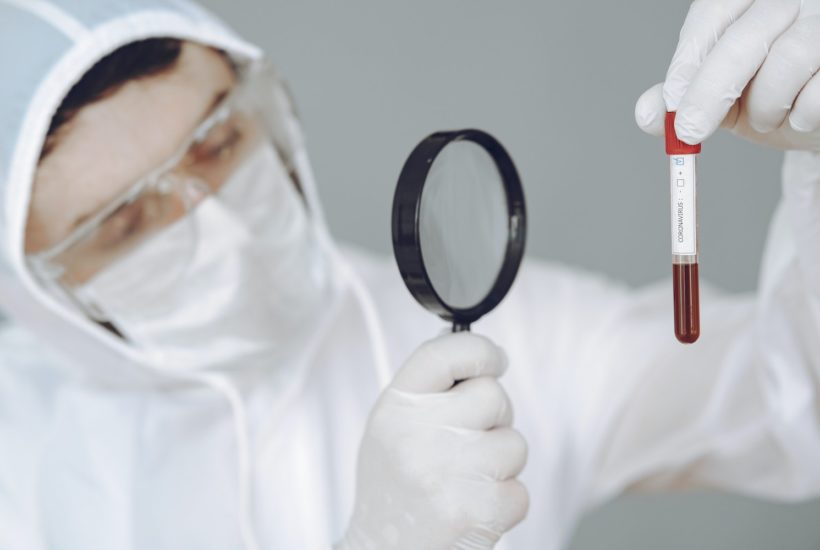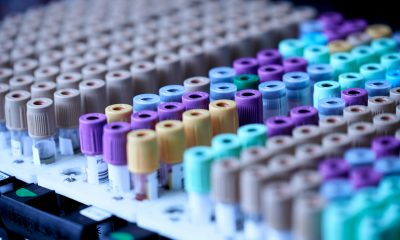Biotech
Grifols will supply the Catalan Institute of Health with 500,000 rapid tests for COVID-19
Grifols, a company that specializes in the production of plasma derivatives, will supply the Catalan Institute of Health (ICS) with 500,000 rapid tests for detecting COVID-19. The Spanish pharmaceutical company closed the first quarter of 2020 with a turnover of $1.44 billion (€1.3 billion), which translates into an increase of 11.8%.The bioscience division continues to drive revenue growth.

The biotech company Grifols advanced in the fight against COVID-19. The Spanish multinational, which specializes in the production of plasma products, has signed an agreement with the Catalan government on health protection. Through the Catalan Institute of Health (ICS), the Government of Catalonia has signed a contract with the giant pharmacy owned by the Grífols family for the distribution of rapid coronavirus tests.
This tender was conducted through Grifols Movaco, the company which groups together the business in Barcelona and Andorra and which owns areas such as bioscience, diagnostics, and hospitals. Under the terms of the contract, Grifols will supply 500,000 rapid anti-coronavirus IgC/IgM antibody detection tests (Sars-Cov2) to Catalan health centers for a total of $605,000 (€544,500). The unit price of each test is $12 (€10.89).
If you want to find out more details about the last agreement signed by the biotech company Grifols and the Catalan Institute of Health and to read the most important financial headlines, download for free the Born2Invest mobile app.
Grifols strengthened its liquidity position
Grifols also has an agreement with the Trump administration to collect plasma from patients recovered from COVID-19. This contract comes after it was learned that Grifols strengthened its liquidity position to $1.89 billion (€1.7 billion), compared to $1.33 billion (€1.2 billion) announced in the first quarter of the year. This follows an increase in its multi-currency revolving credit line from $500 million to $1 billion, maturing in November 2025.
It is not the highest contract, economically speaking, that the management has formalized with a company for the supply of tests. In fact, just this week, the Health Department announced that it had awarded a $4.89 million (€4.4 million) contract for the distribution of 26,800 COVID-19 screening tests to the South Korean company Sugentech.
The biotech company Abbott will also supply 200,000 tests
This is also the case of the giant Abbott, which is supplying more than 200,000 tests for $1.1 million (€1 million). In parallel, and outside the Spanish borders, the multinational reached last March a collaboration agreement with the US authority for Advanced Biomedical Research and Development (Barda), the US Drug Agency (FDA) and other federal public health agencies to collect plasma from patients recovered from COVID-19. The company is making its network of FDA-approved donation centers available to the project.
Abbott also screens and identifies donors, in conjunction with other U.S. health agencies, and processes the plasma to produce the hyperimmune immunoglobulins at its specially designed and isolated infectious disease facility in Clayton, United States. Abott increased its turnover by 12% in the first quarter of the year.
Griffols increased its turnover with 11.8%
The Spanish pharmaceutical company closed the first quarter of 2020 – according to the latest available economic results – with a turnover of $1.44 billion (€1.3 billion), which translates into an increase of 11.8%.
The bioscience division continues to drive revenue growth. Sales in this division increased by 13.6% to $1.16 billion (€1.04 billion). Revenue in the Diagnostic Division remained stable at $186.5 million (€168 million), up 1.4%, as did revenue in the Hospital Division, which rose by 0.6% to $34.3 million (€31 million). The bio supplies division recorded sales of $71 million (€64 million), an increase of 24.5%.
__
(Featured image by Gustavo Fring via Pexels)
DISCLAIMER: This article was written by a third party contributor and does not reflect the opinion of Born2Invest, its management, staff or its associates. Please review our disclaimer for more information.
This article may include forward-looking statements. These forward-looking statements generally are identified by the words “believe,” “project,” “estimate,” “become,” “plan,” “will,” and similar expressions. These forward-looking statements involve known and unknown risks as well as uncertainties, including those discussed in the following cautionary statements and elsewhere in this article and on this site. Although the Company may believe that its expectations are based on reasonable assumptions, the actual results that the Company may achieve may differ materially from any forward-looking statements, which reflect the opinions of the management of the Company only as of the date hereof. Additionally, please make sure to read these important disclosures.
First published in PlantaDoce, a third-party contributor translated and adapted the article from the original. In case of discrepancy, the original will prevail.
Although we made reasonable efforts to provide accurate translations, some parts may be incorrect. Born2Invest assumes no responsibility for errors, omissions or ambiguities in the translations provided on this website. Any person or entity relying on translated content does so at their own risk. Born2Invest is not responsible for losses caused by such reliance on the accuracy or reliability of translated information. If you wish to report an error or inaccuracy in the translation, we encourage you to contact us.

-

 Biotech6 days ago
Biotech6 days agoVytrus Biotech Marks Historic 2024 with Sustainability Milestones and 35% Revenue Growth
-

 Crowdfunding2 weeks ago
Crowdfunding2 weeks agoColombia Approves Terrenta’s Crowdfunding Platform for Real Estate Financing
-

 Crypto16 hours ago
Crypto16 hours agoRipple Launches EVM Sidechain to Boost XRP in DeFi
-

 Africa1 week ago
Africa1 week agoCôte d’Ivoire Unveils Ambitious Plan to Triple Oil Output and Double Gas Production by 2030
























